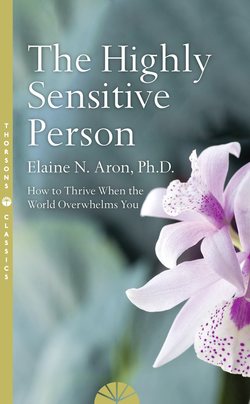Читать книгу The Highly Sensitive Person - Elaine N. Aron - Страница 31
The Case of Charles
ОглавлениеCharles was one of the few HSPs I interviewed who had known he was sensitive his whole life and always saw it as a good thing. His unusual childhood and its consequences are a fine demonstration of the importance of self-esteem and of the effect of one’s culture.
Charles is happily married for the second time and enjoys a well-paid and admirable academic career of service and scholarship. In his leisure time he is a pianist of exceptional talent. And he has a deep sense that these gifts are more than sufficient to give meaning to his life. After hearing all of this at the outset of our interview, I was, naturally, curious about his background.
Here is Charles’s first memory. (I always ask this in my interviews—even if inaccurate, what is recalled usually sets the tone or provides the theme of the whole life.) He is standing on a sidewalk at the back of a crowd that is admiring a window filed with Christmas decorations. He cries out, “Everyone away, I want to see.” They laugh and let him come to the front.
What confidence! This courage to speak up so boldly surely began at home.
Charles’s parents were delighted by his sensitivity. In their circle of friends—their artistic, intellectual subculture—sensitivity was associated with particular intelligence, good breeding, and fine tastes. Rather than being upset that he studied so much instead of playing games with other boys, his parents encouraged him to read even more. To them, Charles was the ideal son.
With this background, Charles believed in himself. He knew he had absorbed excellent aesthetic tastes and moral values at an early age. He did not see himself as flawed in any way. He did eventually realize he was unusual, part of a minority, but his entire subculture was unusual, and it had taught him to see that subculture as superior, not inferior. He had always felt confident among strangers, even when he was enrolled in the best preparatory schools, followed by an Ivy League university, and then took a position as a professor.
When I asked Charles if he saw any advantages of the trait, he had no trouble reciting many. For example, he was certain it contributed to his musical ability. It had also helped him deepen his self-awareness during several years of psychoanalysis.
As for the disadvantages of the trait and his way of making peace with them, noise bothers him a great deal, so he lives in a quiet neighborhood, surrounding himself with lovely and subtle sounds, including a fountain in his backyard and good music. He has deep emotions that can lead to occasional depression, but he explores and resolves his feelings. He knows he takes things too hard but tries to allow for that.
His experience of overarousal is mainly of an intense physical response, the aftermath of which can prevent him from sleeping. But usually he can handle it in the moment through self-control, by “comporting myself a certain way.” When matters at work overwhelm him, he leaves as soon as he is not needed and “walks it out” or plays the piano. He deliberately avoided a business career because of his sensitivity. When he was promoted to an academic position that stressed him too much, he changed positions as soon as he could.
Charles has organized his life around his trait, maintaining an optimal level of arousal without feeling in any way flawed for doing so. When I asked, as I usually do, what advice he would give others, he said, “Spend enough time putting yourself out there in the world—your sensitivity is not something to be feared.”
